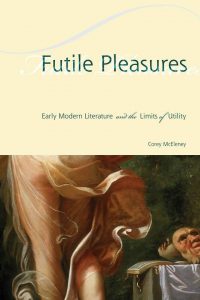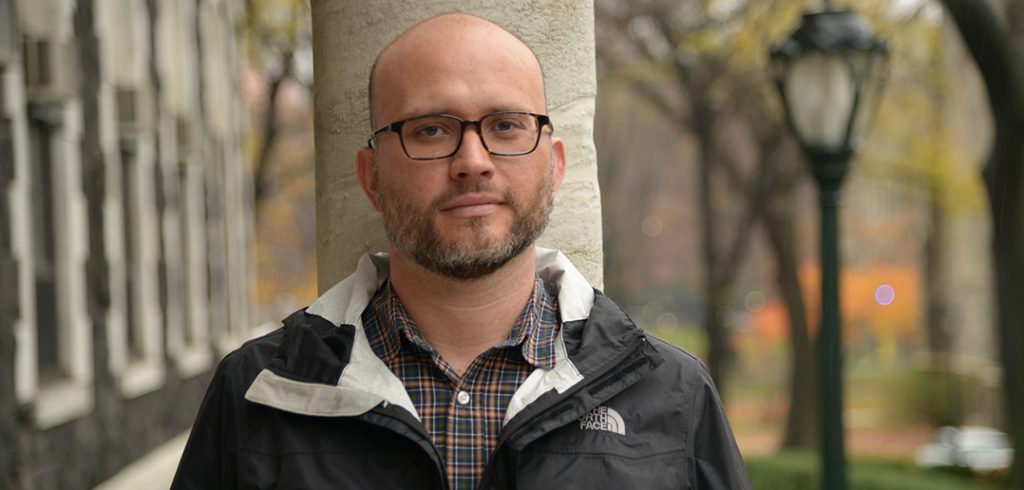 When you derive pleasure from reading literature, reciting poetry, and/or watching a play it must be good for you, yes? After all, it’s not time spent idly, but rather it’s time spent for the mind and the soul, no?
When you derive pleasure from reading literature, reciting poetry, and/or watching a play it must be good for you, yes? After all, it’s not time spent idly, but rather it’s time spent for the mind and the soul, no?
“Pleasure also has a dark side,” said Corey McEleney, Ph.D., who explores the subject in Futile Pleasures: Early Modern Literature and the Limits of Utility (Fordham University Press, 2017).
“It is difficult to negotiate between a pleasure that can lead to something good and a pleasure that can lead to something harmful,” said the assistant professor in the Department of English. “That’s precisely what Renaissance writers were grappling with—particularly when it came to the pleasures of literature.”
McEleney said that the literary arts were viewed as suspect by many, particularly by Puritans who viewed the theater as a place that could lead Christians astray. As a result, writers were placed on the defensive, producing an “explosion of apologetic justifications of the humanities” that continues to this day. He pointed to contemporary books on his bookshelf that parallel Renaissance writers’ efforts: In Defense of Literature, Why Democracy Needs the Humanities, and A Manifesto for Literary Studies.
“The idea that the pleasures of poetry, literature, and the theater offer you a bad education was an intense worry during that period, as it is in our own,” he said.
McEleney’s research toggles between the English Renaissance and contemporary American culture, drawing on queer theory to explore the dynamics. McEleney said Renaissance writers found ways to “manage anxieties about the potential futilities of literary pleasure” by implicating queer figures, such as atheists, foreigners, sodomites, and libertine aristocrats.
He said that studying Renaissance defenses of the liberal arts might help guide current debates. One strain of argument that he finds somewhat dubious is the insistence that the arts are, at all times, both pleasurable and useful.
“Poetry often delights and teaches, but the insistence with which Renaissance writers say this again and again made me think that it’s a they-doth-protest-too-much situation,” he said.
In the book McEleney argues that at times the pleasure of literature may indeed be in conflict with its utility, a notion that he said is overlooked by contemporary liberal arts scholars who are much too busy defending the field to allow for concepts that might undermine their efforts.
“It doesn’t square well with our cherished assumptions about the value of literature,” he said. “In the end literature could be a futile pleasure with the possibility that it may not lead you to the valuable ends you’re trying to reach and instead of teaching you good morals it could teach you bad things.”
Regardless of the dangers, McEleney said that he indulged in the pleasure of writing when working on the book, however arduous the process.
“I came to realize that there’s nothing easy about pleasure,” he said.
He took pleasure not just in the research but also in writing at a “level of style and structure” that he viewed almost akin to a performance, “maybe even at the risk of being charged with self-indulgence.”
But was it a futile pleasure?
“We can question the logic of utility and the value of the liberal arts, but we can’t abandon them.”

